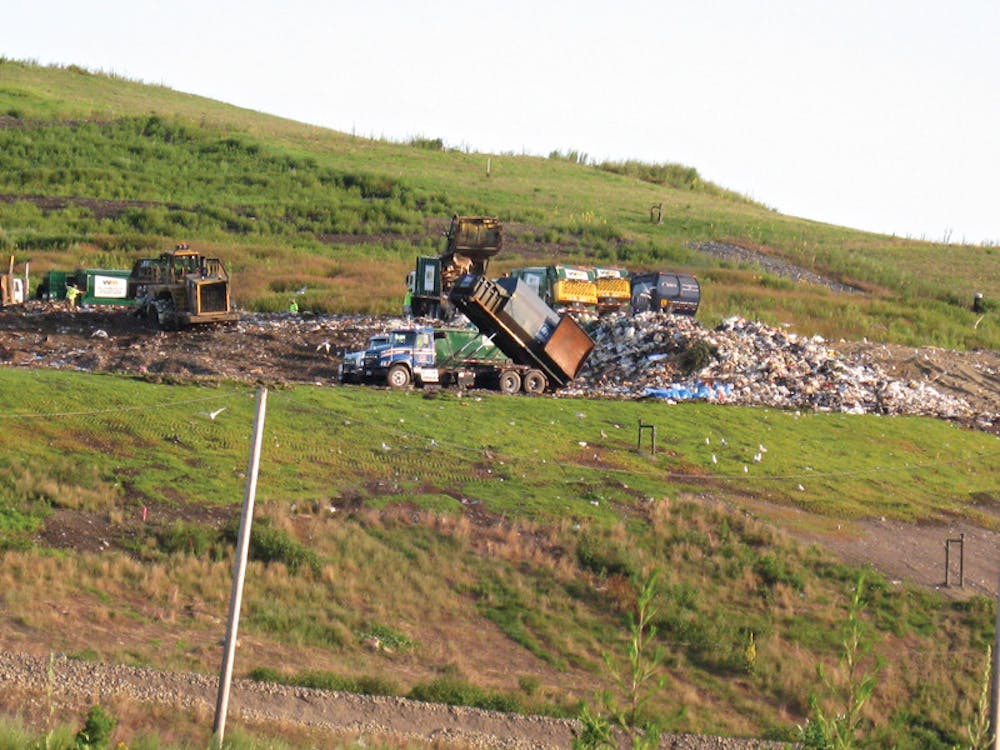Earlier this month, Rep. Donna Walsh, D-Charlestown, South Kingstown, Westerly, New Shorham, proposed a bill that would “attack the food waste issue” by gradually requiring large facilities — such as dining halls, hospitals and supermarkets — to donate their waste or divert it to compost facilities, Walsh said.
The bill includes a timeline outlining when facilities would be mandated to compost waste, setting guidelines for implementation based on the amount of waste produced by a facility. The largest facilities, which produce at least 52 tons of waste per year, will be required to redirect their waste by 2015. The bill carves out exceptions based on the location of the nearest compost site as well as the compost facility’s willingness to take on additional waste.
By 2021, all non-residential food waste would have to be disposed of in this manner, Walsh said, adding that she hopes this initiative will spark state-wide conversation on the value of composting for all Rhode Islanders.
The bill is “a way to divert organic waste from the landfill,” Walsh said, adding that this would extend the life of landfills that otherwise would last only about 25 years before reaching capacity. Approximately 25 to 30 percent of what currently goes to the Central Landfill is food waste, she said.
The Central Landfill processes 2,500 tons of waste per day and rises about 200 feet above mean sea level, according to the Rhode Island Resource Recovery Corporation’s website.
“I think we’re beginning to recognize we cannot continue with what we’re doing,” Walsh said.
Though the Environment Council of Rhode Island has not made an official decision on Walsh’s bill, Greg Gerritt, coordinator of the Rhode Island Compost Initiative, said the bill is “exactly what we need,” adding that the ECRI will likely support it.
“The system of the landfill has to change,” Gerritt said.
The bill’s critics are concerned with Rhode Island’s lack of existing composting facilities, said Dawn King, professor of environmental studies. But the bill creates “an incentive for businesses to come in and do this in Rhode Island,” she added. The regulatory component of the bill would encourage composters to come to the state.
“It guarantees them a market,” King said.
The bill follows models from Vermont and Connecticut, where even residents have compost bins, King said.
Composting would reduce the methane gas produced by organic waste and create various forms of green jobs, Walsh said.
The bill’s first hearings will take place in February.

ADVERTISEMENT




